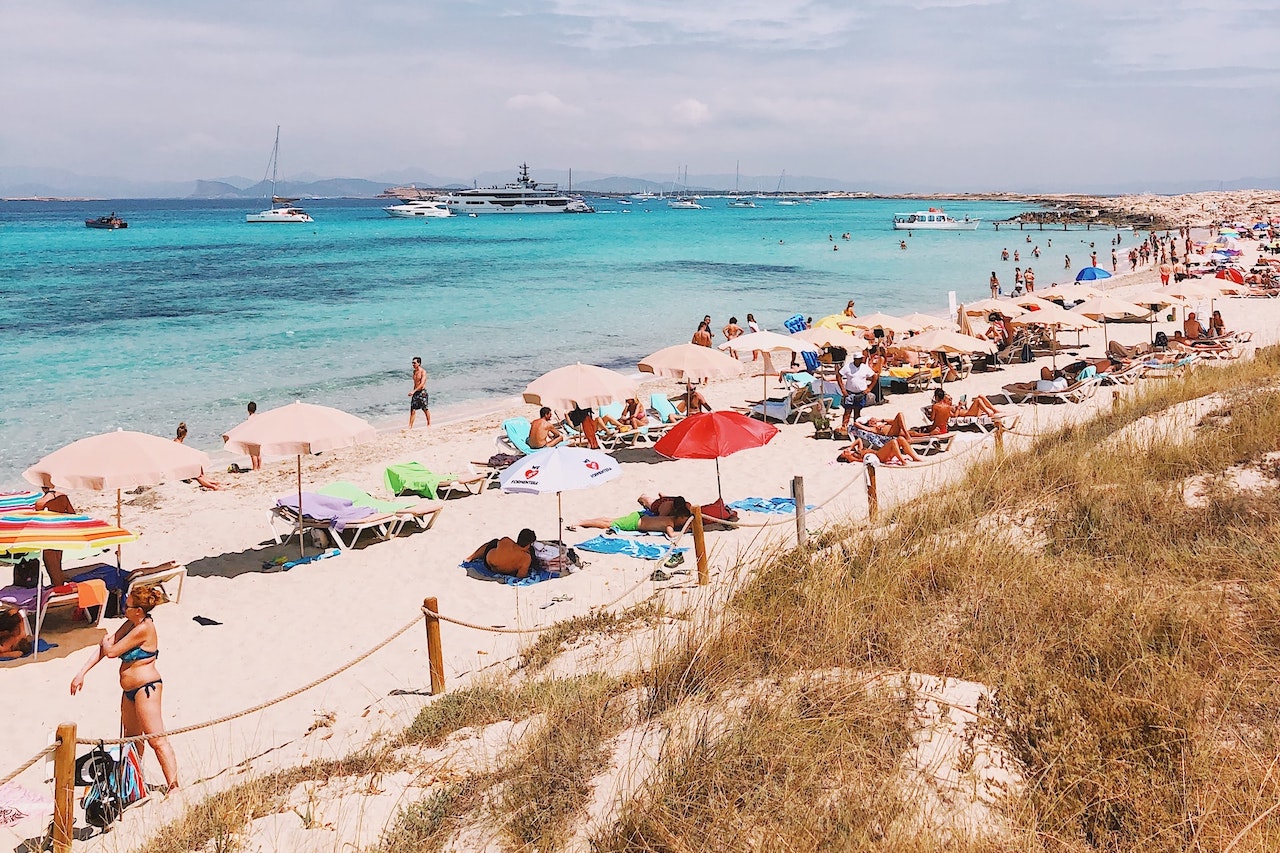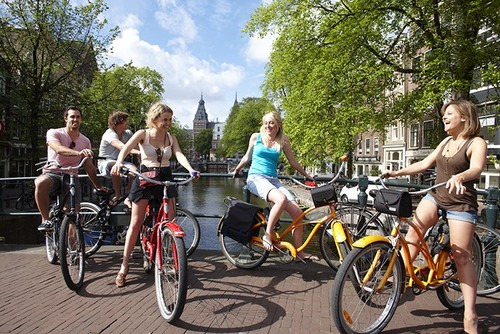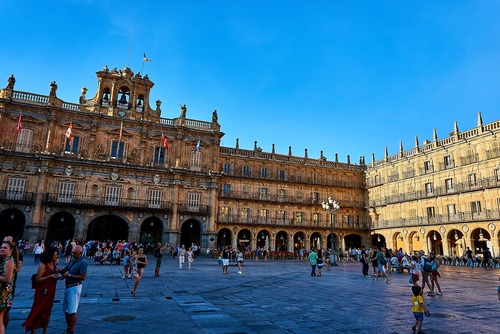Over the past several years, Brittany VanderBeek, from the United States, had wanted to “defy the odds” and travel whilst she was still 'young'. She was convinced that it had to be possible, especially after seeing peers study abroad or work abroad and travel in Europe.
While an undergraduate student, Brittany had her first taste of studying abroad in Europe (at the University of Salamanca, Spain), and learned that travel is possible on a budget.
She convinced herself that she would be able to continue to travel, whether studying or working as a young adult. Brittany proved herself right when she booked a post-graduation trip to Holland, Belgium and Germany.
Below Brittany has outlined some of the top tips she learned from first-hand experience in order to travel to Europe on the cheap.
1. Transport
There are lots of ways to get around Europe and the cheapest include bus, train and plane. Hitchhiking although possible and a free way to get around, really isn't recommended.
2. If flying, consider your initial flight destination
While you may dream to start your trip in a specific location, your initial flight destination may influence flight prices. For example, when I wanted to tour Holland, Belgium, and Germany, my first instinct was to book a flight to Amsterdam or Frankfurt (since they are two of the largest airports in Europe).
It turned out that flying to Brussels, Belgium ended up being the best deal. When planning your itinerary, first consider how flight prices vary in each of the locations you plan to visit. Then you can rearrange your itinerary so that you are able to travel to and from this location. I recommend using SkyScanner where you can search and compare flights from all the main airlines to get the best deals.
Speaking of itineraries, also plan your itinerary so that you can reduce travel distance and time (and therefore travel costs) between destinations.
2. Evaluate all accommodation options
Hostels are not necessarily the most inexpensive! While touring Europe, I often found that hotels ended up having better deals than hostels (especially for private rooms).
I have also heard great things about Couchsurfing and airbnb, where you can stay at someone’s home. This might give you more of a “local” experience, rather than a commercial experience from a hotel that you can have anywhere!
3. Plan ahead
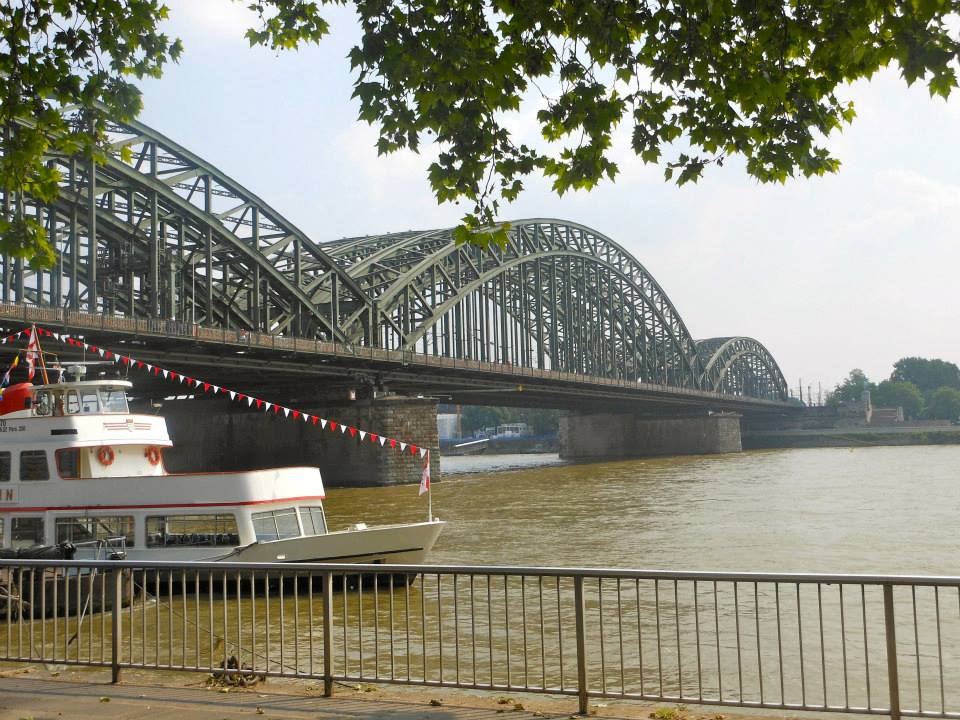
I planned a Rhine River Cruise ahead of time in Cologne, Germany
This is not to say that you should not be spontaneous at times, but at least plan the logistics in order to reduce stress and costs. Read about your travel destination’s history, cultural norms, transportation options, best sites to visit, and best restaurants. Also review a map of the city, where your hotel is, and how you will navigate the city.
Consider booking tours ahead of time to avoid “day of” fees and long lines. Having the background information upfront will help you be efficient when you travel. You’ll also know how to prioritize your time and budget.
4. Walk or use public transportation
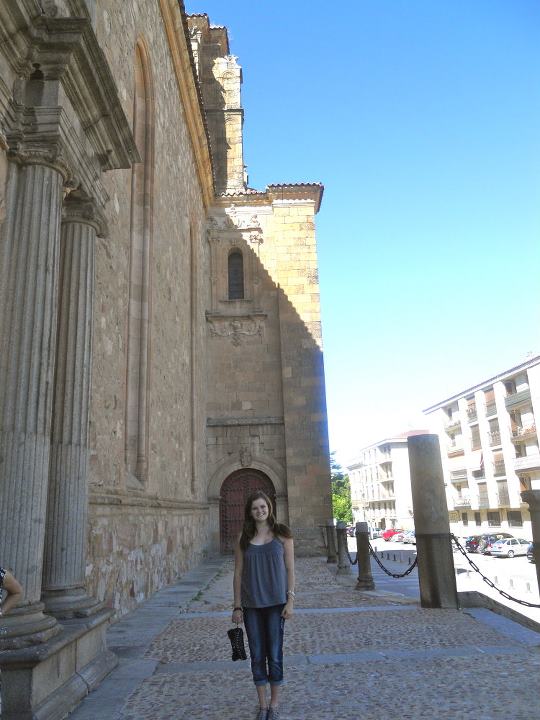
While studying in Salamanca, Spain, I walked everywhere—to and from class for 45 minutes, to and from the night life 30 minutes, etc.—which felt so healthy!
For some places, this could mean a subway, bus, bicycles, or walking paths. Speaking from a United States perspective, Americans’ first instinct is often to either use a taxi or rent a car.
Taxis are costly and renting a car involves learning the local driving laws (which may be very different from what you are used to). Public transportation is often the most affordable, is more sustainable, and gives you a taste of the local lifestyle.
Also if the distances are far, try walking everywhere.
5. Go on free walking tours
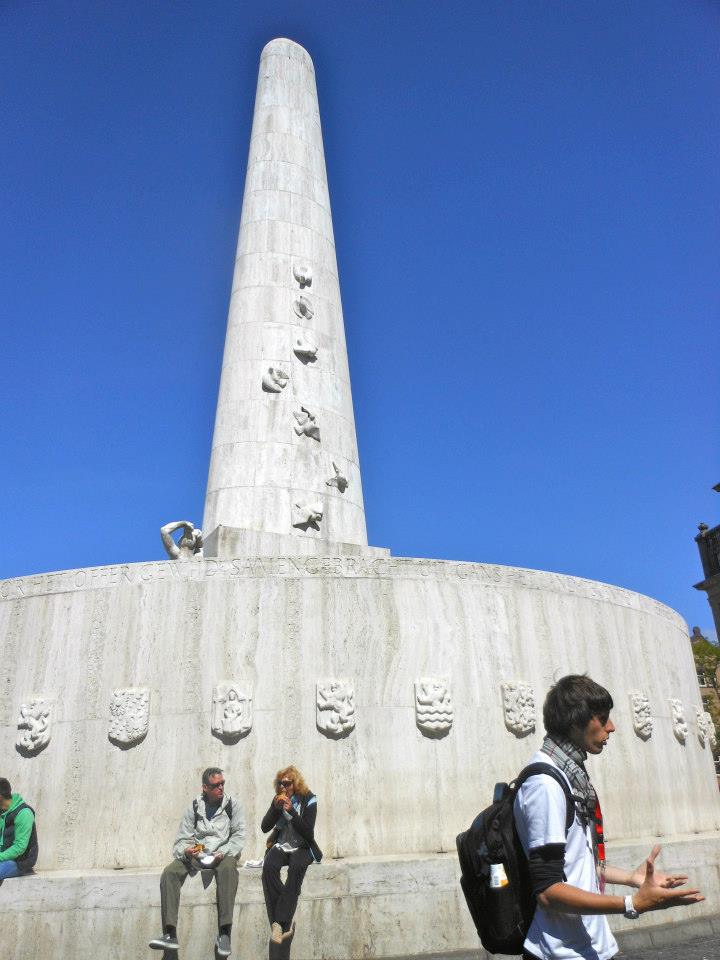
Instead of doing a formal tour where you are required to visit certain museums or venues, a walking tour gives you an overview of the city. You get to be outside of soak in every site, smell, and feel that the city offers.
With a local guide, you will learn about all the highlights of the city and hear more personalized stories. Then you can determine where to focus your time and dive deeper at certain museums or venues. Sandeman’s offers free tours in 18 cities across Europe, the Middle East, and the U.S.
I went on the Sandeman’s tour of Amsterdam, which was a 3 hour tour with an excellent guide who was an Amsterdam local. Not only did I get an overview of Amsterdam, I was able to determine where I wanted to spend more time, such as the Van Gogh museum and the Heineken Experience museum.
6. Shop for food at local markets
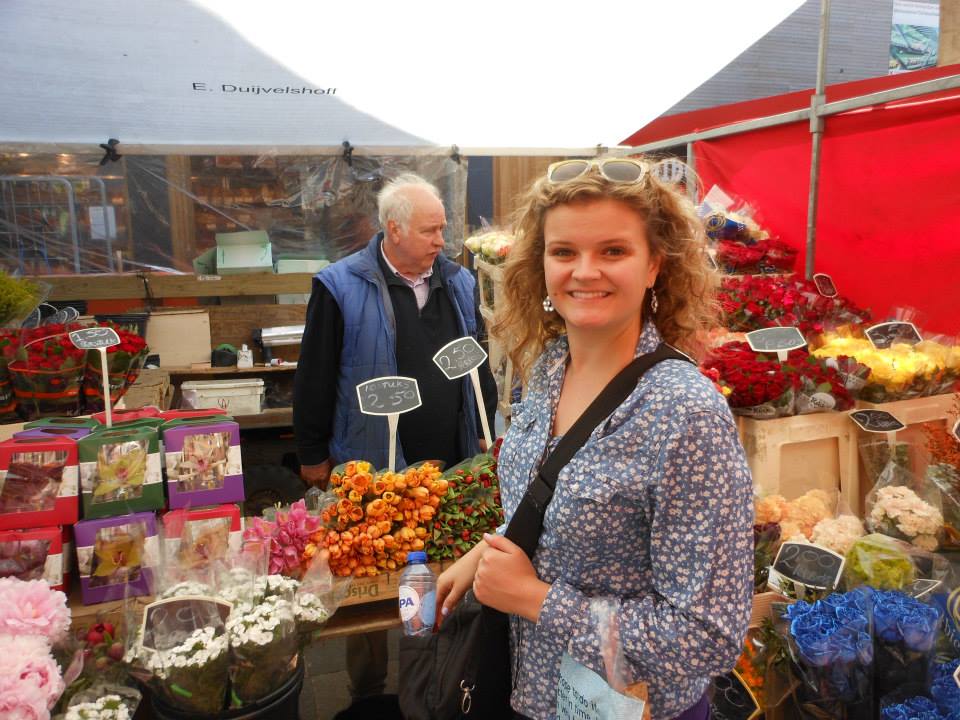
This will help you experience the life of the locals, trying the food that people eat on a daily basis. You will be able to purchase the exact amount and type of food that you want, instead of too much food that you likely won’t be able to save (unless you are close to your accommodation and have a refrigerator). You will also avoid dining fees at restaurants.
Every time I travel, I learn something new about how to be budget-conscious and still explore new places. What other tips do you have to share?
By Brittany VanderBeek
Related Pages

